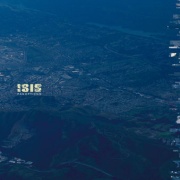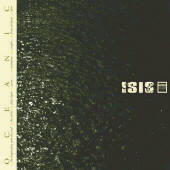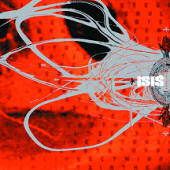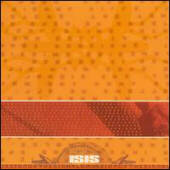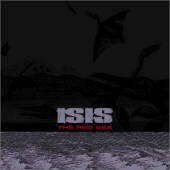Isis - Interview
After going through a fair amount of trouble, a talk between myself and Isis’ vocalist and guitarist Aaron Turner finally took place. Isis, who started around 1997, have recently released their second album “Oceanic”. Isis has been growing in leaps and bounds ever since their inception, and “Oceanic” shows Isis at the best that they have ever been. As Aaron Turner (vocals/guitars) and I talked, I learned a lot about the band, both inside and out.
Allan ‘Enigma’
 How has the touring been going?
How has the touring been going?
It went really, really well, man. It’s definitely one of the best tours we’ve done by far. Those guys in Dälek were great, not only as a band but as people. I don’t know, but it’s just really hard to find people that you get along with on the road, and also finding bands that you can enjoy watching over and over again. They definitely were both. Oxes were on part of the tour also, and we got along with all those guys really well.
The whole point of the tour was to put together something really diverse and interesting, but also something made sense. I mean, we wanted bands that we felt like we had something in common with but that weren’t exactly doing the same thing as us.
Isis has managed to stay fairly underground, but from what I can tell it seems like since the release of “Oceanic” the fan base has been growing constantly. Have you noticed a difference in the amount of people showing up at shows and such, and do you think “Oceanic” has had a lot to do with that?
Definitely. I feel weird, like you said, repeating all this stuff because I know I told you all before. But, I think it was a combination of a lot of things. I think having a new album out period just helps. Regardless of how well an album does every time a band puts something out it just kind of raises people’s awareness in them. But the fact that we had a new label supporting us, and it was our first full length in a couple of years, I think that really helped. And, we had a new booking agent, which helped as well. Plus, like I said the package itself was pretty interesting. You know there were fans for all three bands that came to the shows and even for the bands they hadn’t heard before they seemed pretty receptive. Overall I feel like “Oceanic”, already has started to gather more attention than any of our past releases and I definitely think that helped with the turnout of the shows.
Can fans expect a follow up EP for “Oceanic” like we got for “Celestial”? Isis seems to be pretty big on releasing EP’s.
Not a follow-up EP but there will be some sort of follow-up item that’s going to be like more of a collaborative slash remix album where we’re using source material from “Oceanic” as sort of the basis for the creation of a bunch of new tracks. We’re trying to work with a bunch of different people. That’s going to be the next project we tackle, so it will be related to “Oceanic” but I don’t know if it will really be a continuation of it. But yeah, there will be something else coming from that area so to speak.
What changes have been made since “Celestial”, in terms of how the band gets things done?
Nothing really, I mean we’ve just tried since the beginning to take everything step by step. Every time we go out a tour we play a little bit better, we play a little bit harder, we play longer. We concentrated more on our song writing. I think we’ve just taken more time in general to do things. I’d say that would be the biggest change, just that we’ve been more patient, with every aspect of what we’re doing, from finding the right home to put out the label, to writing the songs, to recording. I think overall we just took a little bit more time and put a little bit more effort into what we were doing and just tried to take everything up one or two notches from where it had been in the past. There was no significant change of mind on our behalf. Like we didn’t say, “Ok this is how we’ve done things, we’re going to try and change it up and do it differently now.” It was more of just trying to improve upon everything we had done up until this point.
Do mainly one or two members handle the song writing process, or does the entire band make their contributions?
Well it depends. I mean, mainly it’s me who writes the basis of the riffs but as far as the overall compositions are concerned the band works on everything together. We all decide the ultimate outcome of each song so I’d say it’s definitely a democratic process.
How do you think “Oceanic” differs from “Celestial”?
It’s just more involved. It sounds more simplistic in some ways, but in all actuality the songs themselves are probably a little more complex. The overall song structures are a little more flowing, which I think gives it a more simplistic feel, but really there is a lot more detail on this record. There is a lot more atmosphere. I think that was a big focus for us. Atmosphere and texture and, and melody. All those things were present with the past Isis releases but this time around we definitely gave them a little more thought and a little more attention.
Yeah that’s exactly what I thought when I reviewed both the albums.
That’s awesome. I mean I think we just shifted our focus a little bit from wanting to be totally heavy and bludgeoning to wanting to have something that had a little more of an emotional range rather than just an out and out wall of sound.
I think that having more melody in “Oceanic” takes it out a lot farther.
I think like the melodic aspect really compliments the heavy aspects in a lot of ways, and I think the contrast is really important and I think we worked a lot more on dynamics as well so the album is more interesting overall rather than just sort of becoming monotonous. I mean, I felt like “Celestial” even had a lot of diversity within it for what it was, but I definitely feel like this record is a little more complex and a little more interesting in that side.
You said you don’t want to just focus on such a great part, so you guys still have that element with you?
Yeah definitely, especially when you see the stuff in the live environment you can gain a little more insight into the parts that are heavy. I think a lot of the stuff that sounds lighter on the record comes across a little bit heavier when you see it in the live setting.
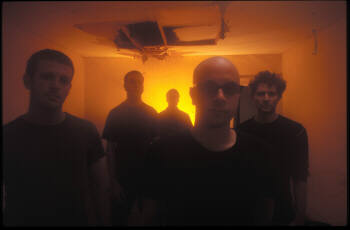 What kinds of influences go into Isis?
What kinds of influences go into Isis?
It’s been so many things. It’s not just music I mean obviously the music is the focus that’s I mean that’s how we choose to express our self so obviously some of the most principle influences are other bands, and those are bands I think are probably fairly obvious in some ways. Obviously The Melvins, our label mates, have been influential on us and maybe bands like Mogwai or Godspeed You Black Emperor! or Slint. Neurosis and Godflesh-like bands that came from a heavy background but then ended up exploring other avenues and really incorporating a lot of other things into their music.
Beyond music I’d say it’s really everything. Everything that we experiences as people - our lives, our relationships, our jobs. All those things are influential in terms of what we do. I think music is obviously a release for a lot of people and that’s one of the most important things for us as a group and as individuals. It’s a place that allows us to vent our frustration and sort of tap into emotions that we were not otherwise allowed to release so to speak. I mean you can’t go around on the street bashing things to pieces and screaming at the top of your lungs, people giving you the hairy eyeball. In the live setting you can act like an animal and throw your shit around and it’s perfectly ok.
I don’t know, it’s everything – it’s daily life, it’s music it’s film it’s literature. I mean all those things come into play as far as what makes Isis what it is, the inspiration, the driving force, and the influence.
So do the influences and the inspiration kind of go hand in hand with each other?
I see those as very similar things. As far as the differences between inspiration and influence, I mean I think when I say our environment influences us I guess I mean those are more like subconscious factors, things that just sort of come out in the music. Whereas something that is an influence is where we’re consciously recognizing an idea and trying to incorporate that into our music.
In my opinion, I think “Oceanic” is a bit farther ahead of “Celestial”. On “Celestial” I would say that you guys had your own sound going on, but at times it didn’t all come together. I think on “Oceanic” you guys have better control of the final product. Do you agree with that?
Yeah I definitely would. I think again it’s just a matter of focus. With “Celestial” it was more like – you know that was our first full length record, it was our first opportunity to really explore ideas in a more in-depth format, and then with “Oceanic” it was like, ok we know what our basic ideas are; now how can we improve upon them. And I think we just took a lot more care in terms of not only the overall songs, but what each individual person was playing. It was more about not so much what they can play, but what can they do to compliment what the other people are doing. More about working together rather than just working on individual parts, and I think that idea of working more as a unified whole definitely helps with the cohesion of the album and the songs. I just think it makes them that more meaningful, the fact that everybody is sort of laying back and letting the other people do their thing when it’s their time, and working together as a group when it’s time to blast out some of the heavier stuff. I think it was just largely because we exercise more focus and more control on this record than we did in the past, and we felt more comfortable with each other as song writers.
I was surprised to hear female vocals in certain songs, but I think they sound fantastic and they really fit the mood of “Oceanic”. What made you guys decide to work with Ayl Naor and Maria Christopher of 27?
They’ve just been good friends of ours for sometime. They’re both in the band 27 who we greatly admire. They’re just an awesome band. We like the idea of exploring our sonic palate so to speak, and the more details we can add to it and the more complex it becomes the more interesting it is for us. Basically we were just looking at them as other tools that we had at our disposal so to speak. We knew that they were like-minded musicians and that they could do something that would contribute to what we were doing without taking away from our own identity. There are very few people that I would trust with something like that, but Ayl and Maria were two obvious choices that we knew we couldn’t go wrong with. We knew that they would dedicate themselves to it as well. They were very excited about participating in the record and they worked really hard on their part, so it ended up being a really great collaboration. I think collaboration is something that will continue to play a larger and larger role in Isis as we go on. It’s just something we really enjoy doing and I think it’s also something where you can learn a lot about your own music as well as learning about others and how to work with others giving you new ideas, which I think is really important as well.
In the live setting and on stage, you guys seem very focused, like you’re not even aware of the crowd almost, yet I think there’s the connection between the band and the audience through just the music. What’s it like for you guys when performing?
For me it’s mostly just about focusing on the music as much as I can and really trying to get into the mood. That’s the most important thing to me is that there is that sort of exciting electricity there. Obviously it’s important to me to play my parts the right way but I can kind of do that without thinking. It’s really more about trying to achieve the right kind of atmosphere and really putting as much into it and sinking myself as much as I can into the music itself. If I can’t get into the mood and I can’t really, really feel the music that I’m playing then I don’t feel like I can give a good performance. So that’s my major concern, just being able to concentrate on the music, having, you know, good enough sound where I can hear everybody, and the rest we just kind of take from there. I feel like when I’m playing music so often I’m not even really conscious of myself or the audience, and that’s the best way for me to be. If I start becoming conscious of the audience and what they’re doing or how they’re reacting then I feel like I’m not focusing on the music enough. Really ultimately for me it’s just about getting in the mood and really feeling the music, and I think that’s probably true of everybody else in the band also.
Yeah, and to me that’s the difference between a virtuoso guitar player and an actual musician. There’s a difference.
Yeah definitely I understand what you’re saying and that’s a point for us as well. We’ve never been concerned so much with writing complicated riffs as writing riffs that mean something to us and carry some weight and have some sort of emotional impact.
Where do you think your vocals stand in the music? What made you choose to go for the style you use now?
I guess it was just what felt natural to me. To me, it seems especially with the heavier aspect of our music, singing just isn’t appropriate. I want something that’s more visceral and has more punch too it so to speak.
And I’m not totally comfortable with my voice. I mean I think that’s one of the few things that I lack confidence about as far as Isis is concerned, so I’m always trying to improve my voice and make it the best that I can but I often feel like I’m still not doing it as well as I should be. But my main focus as a voice is just to have... again its another element to the music and it’s treated more like an instrument than like a typical voice would be in a regular rock band or whatever.
It’s used pretty sparingly. Part of that’s because I don’t feel like them music really needs it all the time and part of it’s just because I don’t really feel like my voice is really as versatile as it needs to be. Like if I was going to sing more often than I do I’d need to learn some other approaches. I think as time goes on I’ll probably start to become a little more dynamic with my voice but I feel like what I do now is pretty adequate and I also feel like the main point of Isis is the music and not the vocals. Not that they don’t count but just that its not the focus as it would be with a lot of other groups.
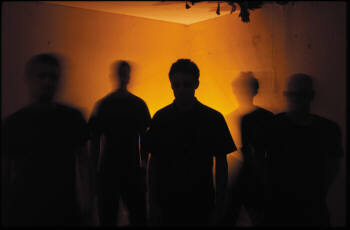 And from reading the passage in the booklet to the album and the other lyrics that go along with it, it seems like the lyrics are important, but are they second hand?
And from reading the passage in the booklet to the album and the other lyrics that go along with it, it seems like the lyrics are important, but are they second hand?
Yeah, I mean I think the written content in the record is almost more important than what I’m actually singing. I almost meant that as more of a guide and more of sort of a supplement to the music rather than to be the literal translation of the lyrics. I mean, there are bits and pieces of the lyrics in there, but most of it’s just writing that I did to have some sort of theme to the record so that I could have some sort of emotional attachment to the subject matter beyond being, you know, just attached on a musical level. I don’t feel that those things are unimportant and it may be secondary in terms of the fact that the music is the ultimate endpoint and that it’s the ultimate focus but I certainly feel like that stuff only enriches the experience and it gives people deeper insight into where we’re coming from and also helps flesh out the record more. It lends more weight to the record and it gives people something else to think about other than just the music. I think the subject matter is fairly important and I definitely hope that a lot of people investigate it when they’re checking out the record.
What’s the idea behind “Oceanic”? Obviously the ocean is a theme, but why?
I don’t like to give away the specific story. I mean, all the writing I did is based on a particular scenario that I sort of thought up and flushed out over a period of about a year and a half. This goes back a little bit, when we were talking about influence and inspiration. One artist I really admire is the filmmaker David Lynch and one of his favorite tools, or his favorite tricks, that he employs with his movie is that he likes to leave mysteries, he likes to leave them open-ended, he likes to keep the viewer guessing about what really happened or what could have happened or what might happen, and I feel the same way about the lyrical content. I feel like there is enough there for people to go on and sort of get the basic themes but I don’t feel like there is enough there it has to be totally spelled out for them. I mean I like the idea of leaving a mystery there, leaving something for the listener to go back to and dig into each time they go back so its not something that’s just immediately obvious right off the bat and doesn’t require much though. But as far as the things that I write about I think its fairly universal subject matter. Again it goes back to our environment and our daily lives. There are things that I think about, things that come from the subconscious, emotional struggles that every human on the planet faces, and maybe the themes are more specific than that, or the story is more specific than that, but I feel like the themes are very universal.
Yeah and I agree. If I were you I wouldn’t want to explain the whole thing. It takes away from the experience.
Yeah, I look at it in this way – if you go to a museum and you look at a painting or in a gallery. The artist isn’t standing there telling you what it means, and there’s no story next to it to guide you, and I feel that music should be the same way. Obviously some people want to have deeper insight into the creators, know what was the mindset of the people that were making whatever it is, but I like the idea of the unexplored mystery of leaving the viewer not necessarily not up to their own conclusions but at least to travel the path themselves rather than having someone else spell it out for them.
How have things changed since signing to Ipecac?
As far as the band itself is concerned, other than the musical progression that we’ve made, not much is difference. But as far as, I guess this gets more into the business terrain which maybe isn’t necessarily the most important or interesting aspect of the band, Ipecac has been able to provide us with more solid funding in terms of things like recording and promotion and all that kind of stuff, which in turn makes it easier for us to write music and easier for us to go on the road and I think that’s probably one of the greatest gifts is just that we don’t have to fuckin’ worry about being able to pay rent when we go on the road and we don’t have to worry about whether the people who are booking our shows are actually going to promote them and we don’t have to worry about the fact that our records are going to go out to press. We know that someone is behind it. So I guess if anything it has just made being in a band and trying to do what we’re doing a lot easier, and its also helped us move to the next level in terms of gaining a wider audience.
The progression between the EP’s and “Celestial” was there, but it wasn’t a huge change in my opinion. However, there is a huge progression going on from “Celestial” to “Oceanic”. Do you plan on relying on this sound for the next album or two, or do you guys plan on actually progressing with each album and reinventing yourselves?
We’ll never do the same record twice. And it’s not because we feel like we have an audience that expects us to do something different every time, it’s because we as musicians need to be interested in what we’re doing and to be interested in what we’re doing we have to continually have to grow and push ourselves and move beyond each place we get to once we become comfortable with it. And I think once you get to a point where you’re comfortable with what you’re doing then its time to challenge yourself again and I think that’s going to be our plan from now until whenever we finish.
That’s all I have for the interview. Thanks for you’re time and again, “Oceanic” is unbelievable. Any last comments?
Thank you, we appreciate the support.
Discography
Upcoming Releases
- Morrath - Obscure Abominations - Feb 25
- Chalice - Divine Spear - Feb 27
- Blackwater Drowning - Obscure Sorrows - Feb 27
- Vide - Aux Enfants Des Ruines - Feb 27
- The Leaving - The Leaving - Mar 06
- Serpent Icon - Tombstone Stories - Mar 06
- Insect Inside - Reborn In Blight - Mar 06
- Triumpher - Piercing The Heart Of The World - Mar 06
- Lömsk - Act II - Of Iron And Blood - Mar 06
- God Against Humanity - The Judgement - Mar 06
- Miserere Luminis - Sidera - Mar 06
- Gravemass - This Is The Way - Mar 06
- No/Más - No Peace - Mar 13
- Monstrosity - Screams From Beneath The Surface - Mar 13
- Against I - Anti Life - Mar 13
- Empire Of Disease - While Everything Collapses - Mar 19
- Hell Trepanner - The Consecration Of Eternal Impurity - Mar 20
- Türböwitch - Under Haunted Skies - Mar 20
- Hanging Garden - Isle Of Bliss - Mar 20
- Putred - Blestemul Din Adânc - Mar 20

